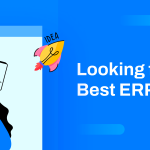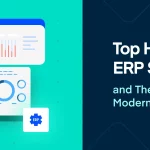Business owners are increasingly looking to upgrade or install new ERP solutions not only to keep up with the latest trends but also to get an all-for-one solution to all sorts of operations. However, implementation of ERP comes with several challenges and risk factors that need to be considered.
Here are some of the common risks you may encounter when implementing ERP software:

Team Members don’t embrace the solution
Employees usually resist new technological changes for the following reasons: technological newness, application size, application complexity and failure of the solution to meet project specifications.

Not everyone likes change, and resistance to new technology is a common phenomenon. Employee fear and frustration can escalate if they experience downtime with the ERP solution or feel interrupted in their normal day-to-day work activities or if they don’t fully understand the benefits of using ERP.
Security and Privacy Issues
Access rights and permissions are also a big factor to consider with ERP systems. It will largely depend upon the needs and requirements of your business. Full access rights to data should be given away very carefully to any user after a lot of scrutiny and guarantee of security. A software developer, for example, would not need to view employee salary information.
ERP solutions are integrated with many different departments (like accounting, HR and customer data) that handle sensitive data. A vulnerable ERP software is a serious risk to an organization’s confidential data.
Therefore, you should get your ERP software from an established vendor so you can be confident that your business and information will remain protected.
Failure to redesign business processes
The right thing is to redesign current processes to fit to purchase ERP system, instead of trying to fit the ERP forcefully into the current system.
Employees who are using the same old system for the last 10 years may feel uncomfortable to change or even don’t feel the need to change. They may feel they’re already doing a fine job with the existing system. The people who are proficient in what they do and know the business inside-out may be the most reluctant to ERP deployment and implementation thinking it’ll not work.

And that is why, with most ERPs firms are required to invest hefty amounts of money to re-wire, re-train and re-skill their employees.
Delayed Updates
This issue is self-explanatory. Outdated solutions are risky because they make your system vulnerable to spyware, virus attacks, and hackers. Worse still, it can cause your entire system to crash and collapse. Businesses often forego and forget updating their software, and often consider it to be unimportant. In the case of ERP, it’s crucial to keep the software updated to fix any security loopholes, weaknesses, bugs, as well as obtain any new features.
Automatic Trust
With Cloud ERP systems, your business data is store by a third party hosting service, and not with you. Unlike open source systems, like WordPress plugins, Cloud softwares don’t store your information locally, thus making cloud ERPs much more vulnerable.
Weighing up the benefits
To avoid unforeseen circumstances, you should also create SMART goals, have an in-depth understanding of your business operations, limitations, and needs. And spend a considerable amount of time researching ERP systems so that it meets your requirements.
Despite all these concerns, the advantages of an ERP system far outweigh the risk factors. If you can maintain a safe and secure ERP system with high levels of data consistency, the system could not only help to make your business reliable, but also provide you with peace of mind.
With a competitive ERP system your business won’t have to worry about privacy, loss of data, having to train in-house staffs about complex systems or about recruiting and retaining expensive ‘qualified system developers’. Because you and your team can take care of everything self-sufficiently from the comfort of your computer.
If you’ve more ideas on how to address ERP implementation challenges and avoid the risk factors, feel free to let us know in the comments!








